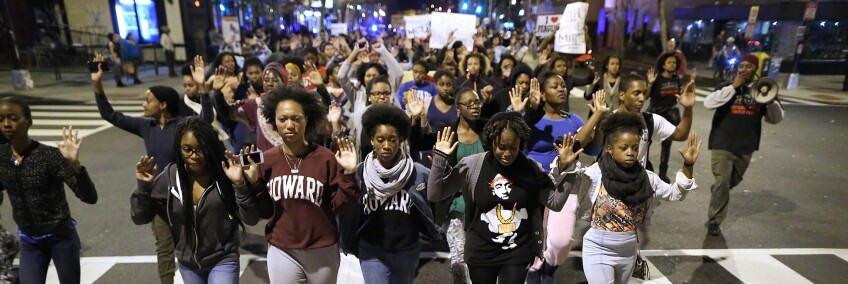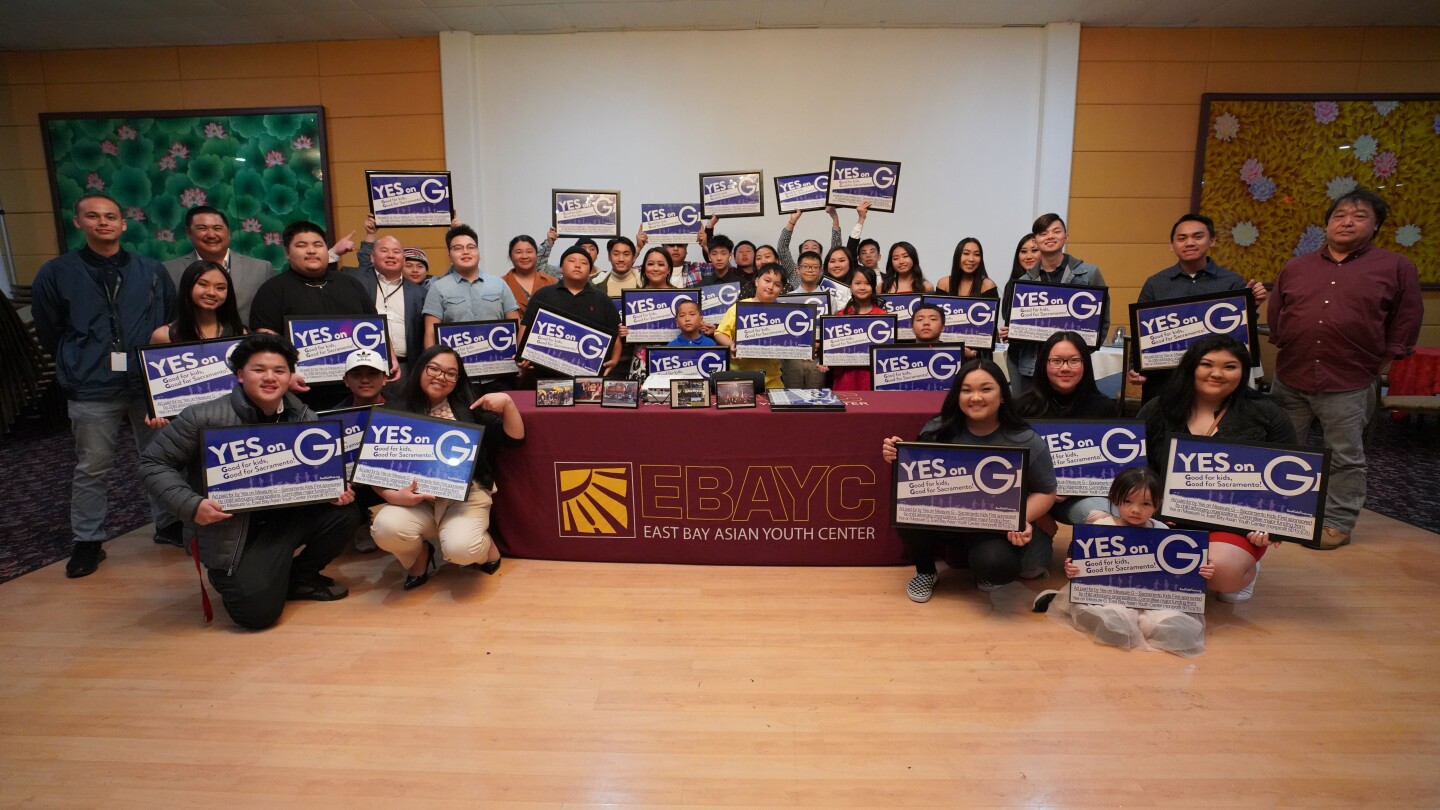How Youth Are Taking the Lead in Issues Local to Global

“Kids are capable of doing many things and of contributing to a better world, a more just world!” This was one of the very first things that 15-year-old Joaquín, a national leader in the Peruvian movement of working children, told me when we met in 2013. Having moved to Lima, Peru’s capital, from his home in a rural area in northern Peru to take on national leadership in an organization dedicated to fighting for working children’s rights, Joaquín was deeply committed to making sure that other poor and marginalized young people had a voice. With his fellow national organizers, he coordinated numerous educational events, attended consultations with legislators, wrote public proclamations and spoke out at rallies to push the Peruvian government to recognize working children’s needs and include their perspectives in their revisions to the national law on childhood and adolescence.
Like Joaquín, young people from around the world have taken to the streets and the halls of government, expressing their desires to be included in democracy and political decision-making. They have mobilized their peers to take action around a wide variety of issues that matter to them. They have demanded major police reforms in Nigeria, called for sexual and reproductive rights in Argentina, mobilized for democratic freedoms in Hong Kong and Thailand, challenged corruption in Slovakia and gone on strike for the climate all around the world. Here in the United States, young activists have also vastly expanded and transformed the public conversations on immigrant rights, racism, policing, gun violence and climate justice, to name just a few of their concerns. Each of these struggles is unique, with its own dynamics and conditions, but one thing that they have in common is that they express young people’s collective demand for their voices to be heard and taken seriously by their elders.

More Stories about Youth Making Change
Young people have deep knowledge about many social problems and injustices because they directly experience these problems. For example, the student activists in Chile who took to the streets from 2011 to 2013 had firsthand knowledge of the inequalities being produced in Chile's educational system. Students from poorer backgrounds could see their schools were underfunded and not serving them well. The student movement’s call for treating education as a human right rather than as a consumer good to be purchased was rooted in young people’s daily encounters with the failures of the privatized educational system. In bringing forward their demand for universal high-quality free public schools through protests and actions in the streets, young people emphasized that they, as students, were experts on the educational system and should therefore be included in educational policymaking. Speaking from their lived experiences as students whose education had been neglected by their government, these young people garnered widespread support for their political agenda. Over 80% of the population expressed their support for the movement in some polls.
The teenagers from Parkland, Florida, who went on to create the March for Our Lives, also referenced their own direct experience as a reason for their activism and made an argument for their right to inclusion in policymaking on the basis of that experience. Having grown up with the threat of school shootings and then the tragedy of a shooting in their high school, these young people emphasized their unique insights into the issue of gun control. For example, a group of student journalists from Parkland wrote, “we are firsthand witnesses to the kind of devastation that gross incompetence and political inaction can produce.” As the Parkland students articulated how thoroughly they understood the problem of gun violence and made a powerful case for the need for stricter gun regulations, they also emphasized the failures of adults to fulfill their responsibilities to young people. Cameron Kasky said that “we are losing our lives while adults are playing around,” and Emma Gonzalez “called BS” on the idea that nothing could be done to prevent such shootings, arguing that politicians care more about their donations from the NRA than young people’s lives.

This notion of adults’ collective failure to act on behalf of young people and their futures also resonates through the claims of the international youth climate movement. As U.S. organizers of the March 2019 Global Climate Strike wrote, “Adults won’t take climate change seriously. So we, the youth, are forced to strike.” Climate activists note that young people will be living with the consequences of climate change for longer and in more extreme ways than their elders. It is their future on the line, and so their generational identity underscores the necessity of their activism on this issue and grants them additional authority when speaking out and demanding action from governments and corporations. Jamie Margolin, 18-year-old co-founder of This is Zero Hour, points out that youth are also able to claim the moral high ground on this issue: “We didn’t create the systems of oppression that hold us down, and we are not old enough to be in the positions of power that enforce them. So when we speak, our message rings true because there is no hypocrisy in calling out our leaders.” Young climate activists have effectively mobilized their peers, taken to the streets in the hundreds of thousands, outlined important policy proposals, and brought a level of urgency to the public discussions of this issue by emphasizing adults’ responsibility to take immediate action for the sake of today’s youth and future generations.
Watch "Earth Focus" S3 E1: The Youth Climate Movement Around the World to meet some of the young activists leading the charge for climate action.
In addition to pointing out young people’s distinctive and unique perspectives on social or political issues based on their age or generational experience, many youth activist movements draw attention to young people’s political knowledge, skills and capabilities. They note that youth may be at least as well-informed as some adults and therefore, should have equal rights to participation in democracy. In the words of one young activist, I interviewed in my research, “We are all equals. So we youth don’t just want to be included — we deserve inclusion.” This perspective underscores some young activists’ calls to lower the voting age to 16. Groups like the National Youth Rights Association, the Vote16USA Campaign, Power California and Votes at 16 all argue that young people have a significant stake in political decisions being made in their communities and countries, are capable of thinking critically about politics and are already politically engaged. As Tyler Okeke, a Los Angeles teen organizing on this issue notes, “as young people, we’re closer to the daily issues we face in our schools and communities; we know what is needed to create a better world that works for all youth…. We’re ready; it’s time to extend the voting age to include young people already creating change.” Youth in Scotland, Austria and Argentina have already won this right. It continues to be a subject of debate in the legislative bodies of the European Union, Australia, Canada and the United States, among others.
These are just a few examples of the many social and political struggles in which young people are taking leadership. In the United States, youth are at the forefront of immigrant rights advocacy, have planned and organized many of the recent Black Lives Matter protests, and continue to push for greater public investment in schools and education. A recent national poll from the Center for Information and Research on Civic Learning and Engagement finds increasing political participation among young people in the U.S. compared to recent years. 27% of young people (18-24) report having attended a demonstration, up from 5% and 16% in similar polls before the 2016 and 2018 elections. Further, 83% of the youth surveyed said they believe young people have the power to change the country.
Youth around the world are expressing their political visions and desires in the streets, on social media, and in the offices and meeting rooms of policymakers. They are asking to be heard because they have direct experiences and firsthand knowledge of injustices and inequalities in their communities; because they have unique perspectives due to their age or their generational identities; because they understand the magnitude and urgency of the problems we are facing; and because they believe in their equal rights to a voice in their democracies. Youth are deeply engaged because they want to have a say in what happens in their communities and in the world. We might be inclined to simply celebrate this fact and praise them for their civic engagement efforts, but this is not what they want. In Greta Thunberg’s comments to the U.S. Congress, she was clear: “don’t invite us here just to tell us how inspiring we are without actually doing anything about it [climate change].” Like Thunberg, many youth activists stress that they do not want to be treated not as inspirational figures, but as serious political actors. They are emphatic that praise is not the purpose of their action. Instead, across continents, young people are loudly calling for governments and policymakers at all levels to truly listen to their voices, to hear their concerns and their proposal, and to take meaningful action on the many issues that matter to them.
Top Image: Hundreds of demonstrators, many of them Howard University students, march down the middle of U Street Northwest after a grand jury did not indict the white police officer who killed an unarmed black teenager in Missouri November 24, 2014 in Washington, DC. | Chip Somodevilla/Getty Images






